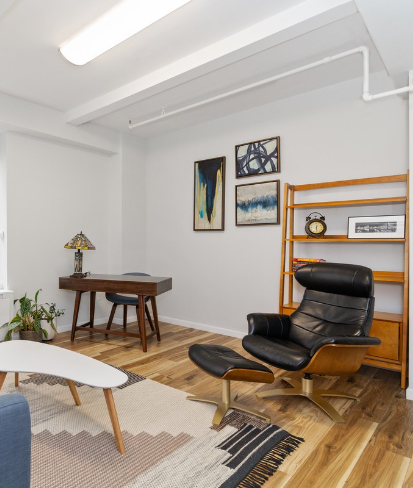Creating a safe and confidential environment is essential for any therapy practice.
Clients need to feel secure and comfortable knowing that their personal conversations remain private. However, thin walls, outside noise, and office chatter can compromise confidentiality, making it harder for clients to open up.
Soundproofing is a simple yet effective solution that ensures therapy sessions stay private while also enhancing focus, comfort, and professionalism.
We’ll explore why soundproofing matters, the best ways to reduce noise in therapy offices, and how it benefits both therapists and clients.
Why Confidentiality Matters
Confidentiality is the foundation of trust in therapy. Clients need to feel safe and secure when sharing personal experiences, emotions, and concerns.
If conversations can be overheard through thin walls or open spaces, it may discourage clients from fully opening up, impacting the effectiveness of their treatment.
A well-designed soundproof therapy office protects client privacy and ensures a distraction-free, professional environment where both the therapist and client can focus entirely on the session.
Therapeutic Alliance Suites provides therapy office spaces designed with privacy in mind, ensuring every session remains confidential and secure.
The Role of Soundproofing in Therapy
Effective therapy office acoustics prevent outside noise from disrupting sessions and ensure that private conversations stay within the room. Without proper soundproofing, clients may feel uncomfortable or distracted by:
-
Street noise and office chatter disrupting the session.
-
Voices carrying through thin walls, making it hard to maintain privacy.
-
Background sounds that affect concentration and emotional connection.
A well-soundproofed therapy office creates a calm, secure, and professional environment, reinforcing client confidence in their privacy.
Effective Soundproofing Solutions for Therapy Offices
There are several ways to enhance sound insulation and noise reduction in therapy offices.
1. Soundproof Walls for Maximum Privacy
-
Install thicker drywall or add mass-loaded vinyl barriers inside walls to absorb sound.
-
Use soundproofing insulation, such as mineral wool or acoustic foam, to block noise transfer.
-
Seal any gaps or cracks around doors and windows to prevent sound leaks.
2. Acoustic Panels for Noise Absorption
-
Install fabric-covered acoustic panels to reduce echo and control noise levels.
-
Add sound-absorbing ceiling tiles for additional privacy.
-
Use bookshelves and furniture strategically to break up sound waves.
3. Door and Window Soundproofing
-
Upgrade to solid-core doors with soundproofing seals.
-
Use heavy curtains or soundproof window inserts to block outside noise.
-
Install automatic door sweeps to prevent sound from escaping under doors.
4. Door and Window Soundproofing
-
Place white noise machines in hallways or waiting areas to mask conversations.
-
Use calm background music to create a soothing and private atmosphere.
Benefits for Client Comfort and Privacy
A well-soundproofed therapy office does more than just protect confidentiality—it also enhances client comfort and trust.
For clients:
-
Greater peace of mind, knowing their conversations remain private.
-
Fewer distractions, allowing for deeper engagement in therapy.
-
Increased emotional security, leading to more effective sessions.
For therapists:
-
Professionalism and credibility, ensuring clients feel secure in their care.
-
Better focus on sessions, without interruptions from external noise.
-
Higher client retention, as comfort and privacy contribute to a positive experience.
Therapeutic Alliance Suites understands the importance of privacy, comfort, and professionalism, which is why we offer soundproof therapy offices designed for confidentiality.
Want a quiet, private space for therapy? Schedule a tour today.
The Key to a Private, Professional Therapy Office
Confidentiality is a non-negotiable part of therapy, and soundproofing plays a crucial role in maintaining client trust and comfort.
Whether through soundproof walls, acoustic panels, or white noise solutions, investing in proper office acoustics ensures every session remains private and distraction-free.
Therapeutic Alliance Suites offers modern, soundproof therapy offices, helping mental health professionals create the ideal environment for client care.









